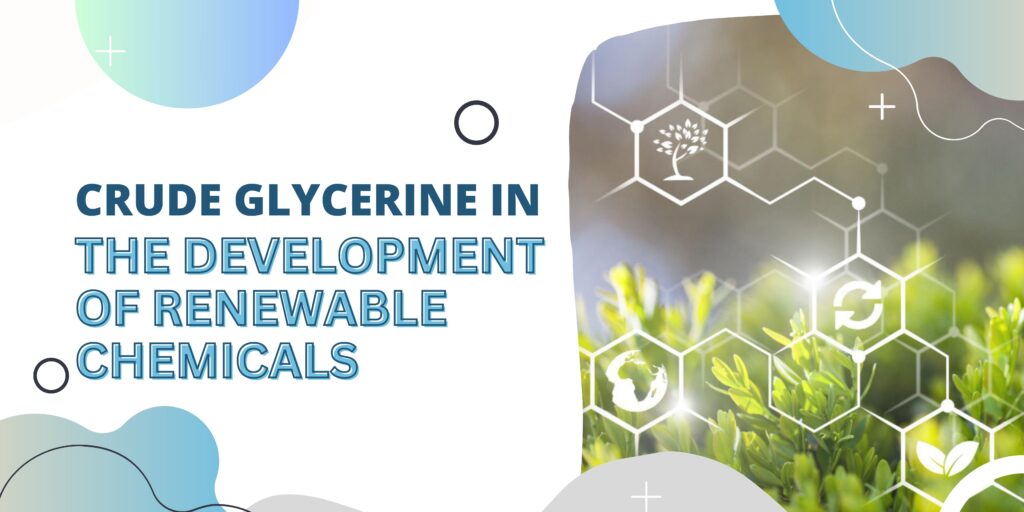
In recent years, the global push towards sustainable and renewable resources has fueled the exploration of alternative raw materials for the production of chemicals. One such promising candidate is crude glycerine, a byproduct of biodiesel production. This article delves into the significant role that crude glycerine plays in the development of renewable chemicals and its potential to reshape the landscape of the chemical industry.
The Basics of Crude Glycerine
Crude glycerine, also known as glycerol, is a viscous liquid that is obtained as a byproduct during the transesterification process in biodiesel production. Traditionally considered a waste product, crude glycerine has gained attention for its versatile properties and potential applications in various industries.
Renewable Chemicals and Sustainability
The chemical industry is a major contributor to environmental issues, including carbon emissions and the depletion of non-renewable resources. In response, there is a growing demand for sustainable alternatives that can reduce the industry’s environmental footprint. Crude glycerine fits into this narrative as a renewable resource that can be used as a building block for various chemicals.
Crude Glycerine as a Feedstock
One of the primary ways crude glycerine contributes to the development of renewable chemicals is by serving as a valuable feedstock. Through various refining and upgrading processes, crude glycerine can be transformed into high-quality intermediates for the production of bio-based chemicals. These chemicals can replace traditional, petroleum-derived counterparts, offering a greener alternative. Also, read about crude glycerine’s role in agriculture and agrochemicals.
Applications in Specialty Chemicals
Crude glycerine has found applications in the production of specialty chemicals such as bio-based solvents, surfactants, lubricants, and even bio-based polymers. These bio-based alternatives not only demonstrate comparable or superior performance but also contribute to a more sustainable and environmentally friendly chemical sector. The versatility of crude glycerine makes it a valuable resource in the quest for reducing the reliance on fossil fuels.
Biorefineries and Integrated Processes
The concept of biorefineries, where multiple valuable products are derived from biomass, aligns with the idea of utilizing crude glycerine in an integrated manner. Biorefineries can leverage the various components of crude glycerine, extracting maximum value from this biodiesel byproduct. This holistic approach enhances the economic viability of biodiesel production and contributes to a circular economy.
Challenges and Future Prospects
While the potential of crude glycerine in renewable chemicals is significant, there are challenges to overcome. These include issues related to impurities in crude glycerine, process optimization, and market acceptance. Research and development efforts are ongoing to address these challenges, exploring innovative technologies for purification and refining to ensure the consistent quality of crude glycerine. Additionally, efforts are being made to establish standards and certifications for bio-based chemicals, boosting market confidence and acceptance.
Environmental Impact and Carbon Footprint
The use of crude glycerine in the production of renewable chemicals contributes to reducing the carbon footprint of the chemical industry. By utilizing a byproduct of biodiesel production, the overall environmental impact is diminished, promoting a more sustainable and circular approach. Assessing and quantifying these environmental benefits becomes crucial in further establishing crude glycerine as a preferred feedstock in the renewable chemicals sector.
Conclusion
Crude glycerine, once seen as a mere byproduct, is now emerging as a key player in the development of renewable chemicals. Its versatile nature, coupled with advancements in refining technologies, positions it as a promising feedstock for a wide range of bio-based chemicals. As the world continues to prioritize sustainability, crude glycerine is likely to play a pivotal role in shaping the future of the chemical industry, fostering innovation, and mitigating the environmental impact of traditional chemical processes.




